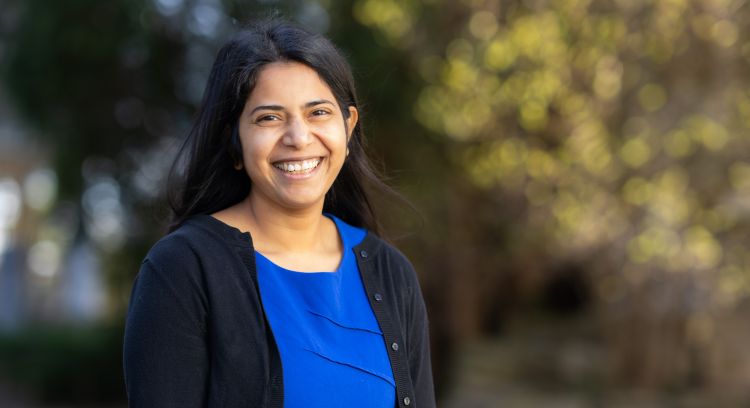Women in Medicine: Caroline Burkey, MD

The American Medical Association recognizes September as Women in Medicine Month, honoring the significant contributions of women to the field of health care.
Throughout the month, the Department of Medicine will feature Q&As with a handful of our own women physicians across a variety of specialties and at different stages in their careers.
Caroline Burkey, MD, is a first year Hematology/Oncology fellow in the Department of Medicine, as well as a former internal medicine resident and chief resident. Her professional interests include medical oncology, teaching and interprofessional education.
How has being a woman shaped your career in medicine?
At the University of Wisconsin (UW), we are fortunate to have many talented women physicians. However, I have still faced situations where I have been mistaken as a student or nurse.
I have also experienced challenges balancing clinical work while attending medical appointments for complicated pregnancies and finding protected time for lactation. Although our chief residents and program leadership were incredible during these moments, I discovered the people who were most unkind to me for having to attend to these duties were fellow trainees.
As such, I continually felt the need to apologize for taking time to have children during my training. This marks a huge area of conflict for me that I still struggle with as I try to balance my roles of wife, mother and physician. The fact that medical training is set up in such a way that residents feel they must choose between their fellow trainees and their family is heartbreaking.
Who have been your greatest personal and/or professional mentors as a woman in medicine, and why?
Sometimes our greatest mentors are our allies. Dr. Tom Shiffler has been an incredible advocate for me. We recently had lunch and I shared my experience during a particularly discouraging hospitalist shift where I was treated disrespectfully by male nurses and male residents for trying to complete appropriate workup for a patient with a large hematoma. Although I tried to dismiss these encounters as isolated incidents, Dr. Shiffler reminded me that he rarely experienced similar hostility as a young hospitalist. His compassionate and wise words have often provided me the encouragement that I needed in my most discouraging moments.
Dr. Andy Coyle has also been extremely supportive of me as I balanced training and family priorities. He encouraged me to apply for fellowship when I was uncertain about whether I could strike the balance between my familial and professional roles. During chief year, he granted me the freedom to explore my professional interests and pushed me outside of my comfort zone. My family will always be thankful for his leadership and his work in making the internal medicine residency program very welcoming for young families.
Another important professional mentor for me is Dr. Monica Patel. She is an astute physician who embodies many identities that I possess, but with unparalleled grace, composure, and finesse that I only hope to share. As my clinic mentor of many years, she has imparted upon me wisdom regarding practice management skills, finer points of medical decision making, and how to provide efficient but comprehensive care.
How have you engaged women’s health issues during your residency, chief residency, and now fellowship?
First-year residents are extremely vulnerable to the feedback that they receive and the words that are spoken over them. Dr. Margaret Walker and I are conducting a research project on the use of gendered language in feedback given by senior residents to first year residents. We aim to develop a curriculum to help trainees provide less gendered and more effective feedback. This is an ongoing project that we started in residency.
During my chief year, I advocated for the internal medicine residency to proactively protect time for lactation for women trainees returning from parental leave. Additionally, I also had the opportunity to connect women trainees to practicing physicians who can mentor them throughout residency.
I am early in my fellowship program, but I hope to encourage women trainees to pursue advanced medical training and leadership roles to bridge the gender divide present in academic medicine. I also hope to share some parenting hacks along the way.
Responses have been lightly edited for length.
Photo credit: Clint Thayer/Department of Medicine.